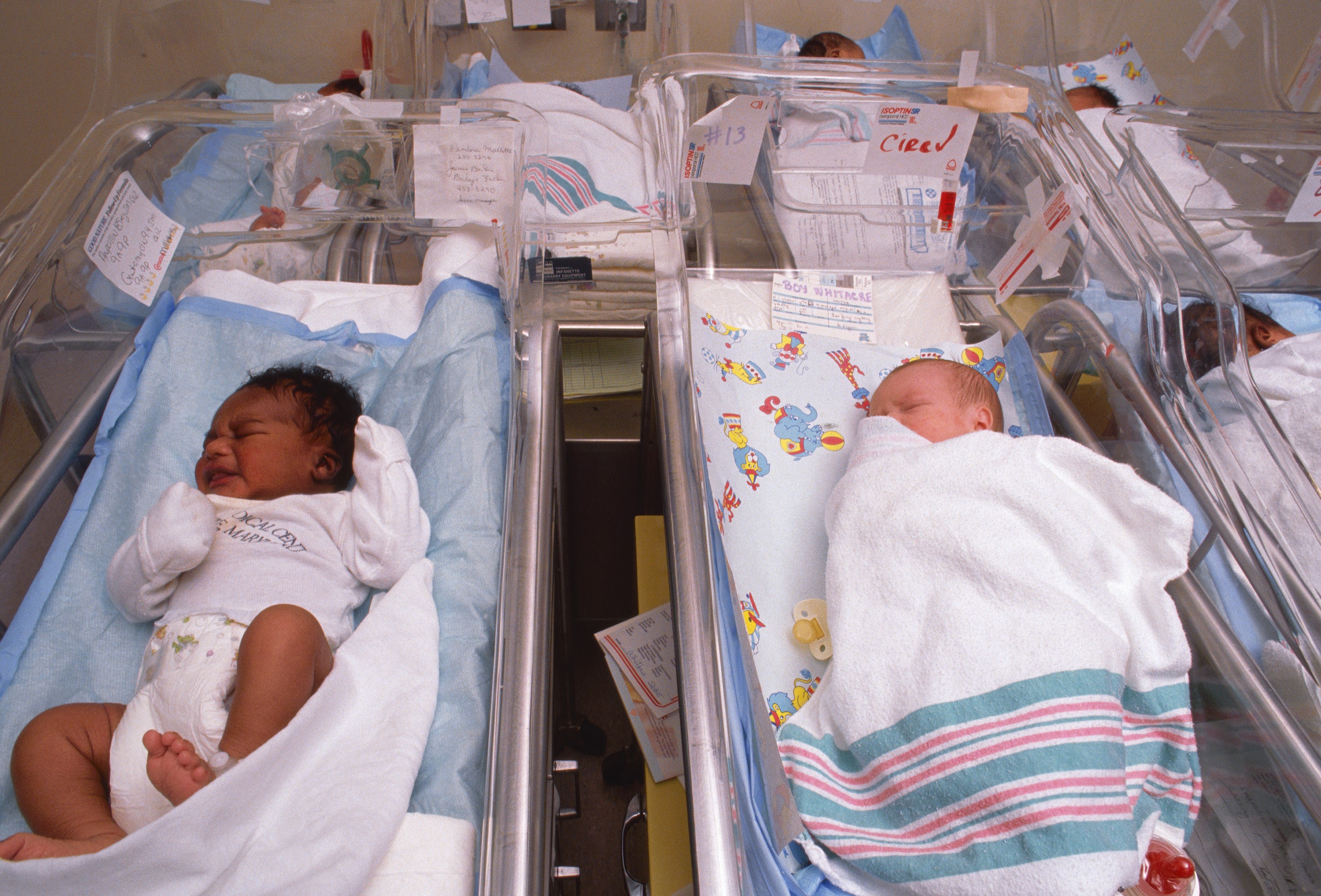Two academics have argued that the “harmful over-consumption of schooling” is responsible for the plummeting birth rate across the U.S.
Jay P. Greene and Lindsey M. Burke, both Ph.Ds, are concerned that other Americans may be becoming unnecessarily educated. An overview of their argument was published on Monday on the website of the Heritage Foundation, a think tank where Burke is the director of the Center for Education Policy and Greene is a senior research fellow.
The Heritage Foundation is the group behind Project 2025, the conservative manifesto for how the U.S. should be restructured under incoming President Donald Trump.
Birth rates have plunged in the U.S. and the authors say the average American woman will have just 1.6 children in her lifetime, “far below the rate of 2.1 required to maintain a steady population.”
Greene and Burke believe education policy discourages Americans from starting families in favor of attending university and also suppresses religious beliefs that encourage high fertility rates.
While highlighting the benefits of higher education, the authors said, “Good things can become bad when pursued in excess.”
The trend of fewer children being born now means an increasingly elderly population with a reduced working-age demographic in the future. Experts have warned of a looming “silver tsunami” after U.S. Census Bureau figures suggested that by 2035 older adults will outnumber children—a first in American history.
Getty Images
Some high-profile figures have raised awareness of the issue. Business mogul Elon Musk, who has been given an “efficiency” brief in Trump’s upcoming administration, is passionate about “pro-natalism” and is known to have fathered 12 children.
Musk has called for families to have more children and described declining birth rates as “the biggest threat to civilization.”
Europe is similarly concerned, with its nations meeting in September to discuss a report that laid bare the strain due to be placed on welfare systems and public finances with a sharp fall of working age citizens and an aged population.
In the U.K, deaths outnumbered births for the first time in 50 years (excluding the COVID-19 pandemic), officials revealed in October.
China’s population is also shrinking, while Japan’s birthrate continues to nose-dive. North Korea reportedly issues punishments to retailers who sell contraceptives in a bid to tackle its own declining population. And an Indian politician recently urged women to have a minimum of two children each “for the greater good” of the country.
There are some countries bucking the trend, however, with a skyrocketing population surge forecast for Africa. The population of sub-Saharan Africa is projected to double by 2050, according to the United Nations.
Some argue that a shrinking population is beneficial, being a marker of women’s reproductive rights. Environmental activists suggest it will lead to a greener world with fewer people burning through finite natural resources and polluting the planet.

Getty Images
The full article by Greene and Burke was originally published last week by online magazine The Federalist and attempts to offer a solution to the problem. It was titled: Here’s How To Actually Reverse The Baby Bust.
Greene and Burke noted there are many “cultural and technological factors” at play that have resulted in hospitals’ emptier birth wards in the U.S. But arguments that it is the high cost of rearing children that puts off prospective parents appear to be unfounded, they wrote.
Hungary and South Korea have both “offered very generous government subsidies for families having children (…) [but] these large expenditures clearly haven’t helped.” Americans had more children in the past when “people had significantly less money than they do now,” they added.
“The best way to promote fertility isn’t funding parenthood. It’s stopping the government programs that discourage people from having babies,” the authors wrote.
Education was the prime example of this, they suggested, arguing that “current education policies push people to delay having families until they are much older and impose barriers to accessing religious education, both of which significantly reduce fertility rates.”
Young people are pushed toward university due to “enormous incentives” and “highly subsidized student loans.” This has “created an artificially extended adolescence for the bulk of American young people.”
The more educated the woman, the older she is when she begins to have children, the authors said. Some 21.8 percent of women with a bachelor’s or higher degree will never have any children at all, Greene and Burke wrote.
“Education policy also suppresses fertility by discouraging parents from choosing religious education in K-12 schools,” they said, noting, “Adults who are more strongly attached to religion tend to have many more children.”
The pair praised higher education, saying it “can have significant economic and social benefits,” concluding: “Good things can become bad when pursued in excess. Believing that government subsidies for higher education have induced harmful over-consumption of schooling is no more against higher education than fighting obesity is against caloric intake.”
The authors concluded: “The first two policies we could discontinue are those that push people to remain in school longer than they otherwise would and those that burden religious beliefs that make having babies more likely.”
Newsweek has reached out by email to the Heritage Foundation and the Harvard Center for Population and Development Studies seeking comment.
















